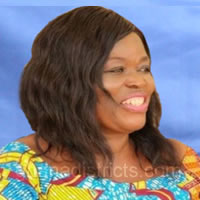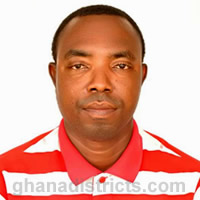Investment And Business Potential
Agriculture is the bedrock of the assembly’s economy. It employs about 70% of the working population.Cocoa, oil palm, cassava and plantain are the major cash crops, while poultry is also picking in the municipality. Crop yield is quite encouraging and can be improved even further if patronage of hybrids is increased. Land is mostly owned individually, through outright purchase, and this has constrained the growth of commercial farming.
Cassava is processed into dough, gari, tapioca and others, usually by women.The gari is sold in markets in Accra, Koforidua and other densely populated areas.The municipality is among the major cocoa producing centres in the country.Cocoa production has been going on there for the past 30 years.Cocoa beans are produced and further processed into chocolate and beverages.The pod is also used in the local soap and cosmetic industries.
The availability of raw materials for local gin production has made the assembly one of the major producing centres in the country. The local gin is distilled from fermented palm wine and sugar cane. The assembly is noted for its vibrant commercial activities. There are seven main market centres, including those at Suhum, Acheansa, Anum-Apapam, Dochiwah and Akorabo, and people from all parts of the country, especially Accra, Koforidua, Asamankese, Kumasi and Kibi, flock there markets to do business.
The bulk of the farm produce from the area is transported to Accra, Tema and other parts of the country. Handicrafts have great potential for investors in the municipality. Some of the most spectacular handicrafts are the hand-woven fabric, kente.This economic product has a spectrum of shades and lustre.There are two principal kente weaving centres in the municipality and weavers produce as and when an order for supply is made.
There are about 10 sculpture producing centres.They look up to being exposed to the foreign market, using tourists as the first medium.The furniture trade in the municipality is as old as the assembly itself. The hard local tropical varieties of wood are processed and finished into beautiful sets of furniture in a wide range of decorative masterpieces.
The assembly has an outstandingly good leatherworks craftsman who manufactures for organisations that place orders for various items from time to time.His handiwork has caught the rapt attention of the Government of Ghana and he has been requested to produce items for national and international conferences.The ceramics craft has a great potential for growth.
The assembly has two professionally trained persons who are producing beautiful designs across the range of ceramics.This area needs some investment for it to expand at a time when ceramics and porcelain ware is in high demand abroad.Similarly, richly embroidered Ghanaian garments are other lucrative products.Craftsmen engaged in this trade are united by an association that produces for local consumption.
It is their desire that with some external financial support and marketing expertise, they would produce for the foreign market.There are also some tradesmen and women engaged in the production of batik and tie-dye.Their skill for production has been enhanced by the training provided by the Intermediate Technology Transfers Unit (ITTU) branch in the region.The craftsmen and women here seek market abroad for their products.
One area that should be of interest to specialised investors in healthcare is Ghanaian traditional medicine. This has proved invaluable in the treatment and cure of ailments such as stroke, hypertension, diabetes, impotence, barrenness, pile, asthma and a host of others. There are three prominent traditional doctors in the district, each with over 25 years of experience.Here, investors and medical researchers would do well to enter into this somewhat unexplored area.
Establishment of Quarries
The Municipality has many granite deposits and there are already two quarry companies near Brong Densuso on the Suhum-Koforidua road and near Tetekasum on the Suhum-Asamankese road.
Clay for Paint at Obuoho, 7 kilometers north of Anum Apapam.
Processing of Palm Oil/Kernel: The assembly abounds in small palm plantations which
have taken over the lands used to cultivate cocoa.
Cassava Processing: The assembly is a major producer of cassava.
Hospitality Industry: The assembly links standard hotels quest houses and restaurants.
Informal Sector
The assembly can boast of many dressmakers (male and female) hairdressers and beauticians. Many female JSS graduate who are unable to continue their formal education after junior high school learn either sewing or hairdressing. Many of them are however, unable to set up a trade because of lack capital. They therefore end up branching into trading or end up as house wives. Even then from empirical observation there is so much unemployment in the two trades. This may be due their numbers in relation to income level.
Though the Assembly collects levies from them they add to the congestion of the main streets of Suhum by their kiosks, many of which are wrongly sited. The estimated number of providers in the assembly is shown in the table below:
Mining And Quarring
Gold Mining
Mining is mainly of the alluvial type in the basin of the Ayensu river by both a by formal sector company and artisan miners also known as the galamsey operators. However the former has suspended operation due to misunderstanding between it and the host communities over an environmental issue. Unfortunately the contribution by the galamsey operators to public revenue is very negligible since most of them operate illegally.
The impact of mining activities on the environment has very adverse: Rivers and Streams, which serve as source of water for the environment has been destroyed.
In spite of its negative environmental impact small-scale mining is a potential source of employment for the youth. What needs to be done in the district level is to enforce national laws in the sector and alleviate the numerous social problems it has created such as spread HIV/AIDS, prostitute, drug addiction and general lawless apart from environmental degradation
Quarrying
There are two main quarries at Brong Densuso near Nankese and Bukor just outside Suhum on the road to Asamankese.The former is operational while the latter is currently under rehabilitation. There is a great potential for the quarry industry given its proximity to Accra.
Children
The main issues concerning children in the municipalityy are non-maintenance by parents and guardians, abandonment, orphans and orphanages.
Cases of Neglect
Cases of parents and guardians abandoning their responsibility have been on the ascending since 2006 as shown below:
The number of cases held at the family tribunal also increased from 28 in 2006 to 37 in 2009
Institutional Orphanages
There are two institutional Orphanages mainly, Jehovah Rapha at Suhum and Baptist Orphanage at Akote Trio about 7 to 9kms east of Suhum. The combined number of inmates which stood at 132 increased to 134 in 2009.
Children in Difficulty with the Law
Juvenile Offences are on the increase especially in Suhum due to both Social and economic factors which expose them to crime. The factors are the following among others;
Neglected children engaging in jobs such a portage and trading
Exposure of children to negative and bad – social behavior by the TV and Video.
Inadequate engagement of pupils during instruction hours that creates the chance for them to roam about or
play delinquency.
Most cases as settled out of court
The Aged
The number of destitute aged and elderly persons as increasing to due the breakdown of the extended family system and with that the support it offered its members.
The only support for them at the moment is in the form of material us second hand clothing, wheel chairs, clutches, food and drugs donated by non-governmental organization (NGOs). However, data from the NHIS indicate that people aged seventy years or above constitute as mush as 8.3%, though their share of the population is about 6.1%
Financial Sector
Communication
Postal Service: Though 47% of the population lives within a post office/agency, the postal agencies are not functioning because of absence of personnel (i.e. Postal Agents.) About 37% of the population lives within 0 – 5 km of a fixed telephone. This is the second highest in the region.
The advent of the mobile phone services in the country, all the five service providers currently operate in the district. Many residents in both Suhum Township and other areas now enjoy mobile phones services.
Bank
Accessibility to banks is regarded as high if the user has to travel 0 – 10km, medium, 11 – 14km, low up to 16km and least beyond, when traveling on a second-class road. This means the high accessible area to the service is the area immediately around it.
Bank and micro finance institutions
Ghana Commercial Bank
Agricultural Development Bank
South Akim Rural Bank
Mumuadu Rural Bank
Manya Kro Rural Bank
Fanteakwa Rural Bank
Eclof Ghana
Sinapi Aba
A-Cube Investment Ltd.
Date Created : 11/27/2017 3:35:08 AM






 facebook
facebook twitter
twitter Youtube
Youtube TOLL FREE 0800 430 430
TOLL FREE 0800 430 430 +233 593 831 280
+233 593 831 280 GPS: GE-231-4383
GPS: GE-231-4383 info@ghanadistricts.com
info@ghanadistricts.com Box GP1044, Accra, Ghana
Box GP1044, Accra, Ghana